
Vassilis Tsitsanis was a Greek songwriter and bouzouki player. He became one of the leading Greek composers of his time and is widely regarded as one of the founders of modern Rebetiko and Laiko music. Tsitsanis wrote more than 500 songs and is still remembered as an extraordinary composer and bouzouki player.
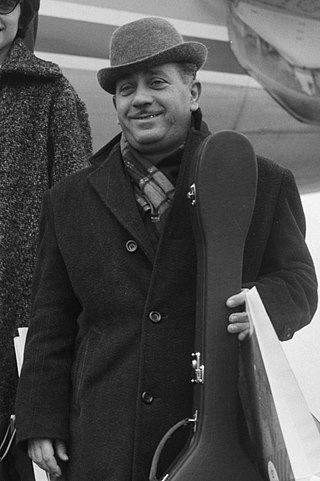
Giorgos Zampetas was a Greek bouzouki musician. He was born in Athens, where he also died, but his origins were from the island of Kythnos.
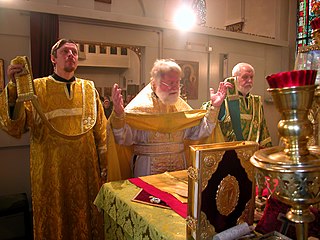
The Cherubikon is the usual Cherubic Hymn sung at the Great Entrance of the Byzantine liturgy.

Mariza Koch is a Greek folk music singer who has recorded many albums since starting her career in 1971. On the wider stage she is best remembered for representing her homeland at the Eurovision Song Contest 1976 with the song "Panagia mou, panagia mou".

Ivi Adamou is a Greek Cypriot singer. Born and raised in Agia Napa, she rose to recognition in Greece and Cyprus following her participation in the second season of the Greek version of The X Factor, where she was under the mentorship of Giorgos Theofanous. Right after her elimination from the X Factor, Adamou secured a recording contract with Sony Music Greece. She gained further recognition from her participation in the Eurovision Song Contest 2012, where she represented Cyprus with the song "La La Love".
Georges Sari or Zorz Sari, a Greek author and actress, was born in Athens. Her mother was French and her father was Greek from Ayvalik, Turkey. She grew up in Greece, where she attended elementary and secondary school. World War II broke out in 1939 and Greeces' entry on the 28th October 1940 before she could finish her schooling.
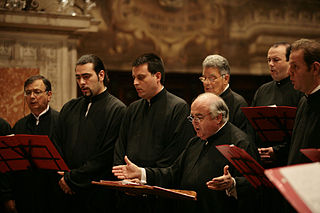
Lykourgos Angelopoulos was a Greek chanter. He was professor at the School of Byzantine Chant at the Conservatory of Athens, the founder and director of the Greek Byzantine Choir and an Archon Protopsaltes of the Patriarchate of Constantinople.
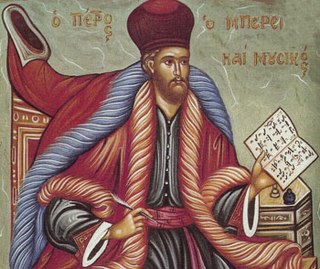
Petros Bereketis or Peter the Sweet was one of the most innovative musicians of 17th-century Constantinople. He, together with Panagiotes the New Chrysaphes, Balasios the Priest and Germanos Bishop of New Patras was one of the most influential figures in the evolution of the Byzantine psaltic art following the fall of Constantinople in 1453, although he never was associated with the Patriarchate in Fener. For many years, he served as the protopsaltis of the parochial church St. Constantine of the Hypsomatheia (Samatya) quarter close to the Marmara coast.
Eleni Vitali is a Greek popular singer and composer of Romani origin, active from the early 1970s.
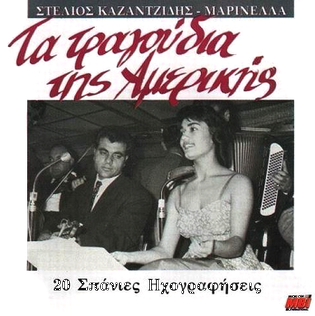
Ta tragoudia tis Amerikis is a double studio album by popular Greek singers Stelios Kazantzidis and Marinella. It was released in 1991 by MBI in Greece and it contains 28 rare recordings that were recorded by Stelios Kazantzidis and Marinella in 1959 and some of those were released on 7" rpm vinyl records in United States, by NINA Records.

Popi Malliotaki is a Greek pop-folk singer.
Petros Gaitanos is a Greek singer. He was born and raised in the village of Kokkinogeia located in Drama, Greece.

Dimitra Galani is a Greek singer and songwriter.
Poll was a Greek pop band founded in 1971 by Kostas Tournas, Robert Williams, Stavros Logaridis and Kostas Papaioannou. It is considered a historic Greek group of the 1970s with pioneering lyrics, that resonated with the Greek youth of the '70s. The band's songs are described as "some of the best songs, which have remained in the history of Greek music". Poll is the most commercially successful Greek band of all time.
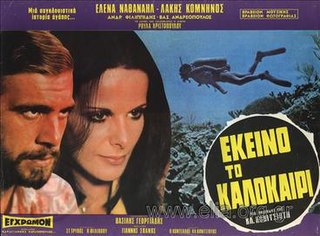
Ekeino to kalokairi is a 1971 Greek film starring Elena Nathanael and Lakis Komninos. It won the photography and music prizes at the 1971 Thessaloniki Festival of Greek Cinema. It was the Greek version of the successful 1970 American film Love Story. The film was one of the greatest successes of Elena Nathanael and the music of its soundtrack "haunted all the teenage parties of the 1970s". Its soundtrack features the hit song "San Me Koitas" which has been described as "one of the most beautiful erotic songs of all time".
Maria Papayanni is a Greek author. She writes books for children and young adults.

Katerina Sakellaropoulou is a Greek judge who has been the president of Greece since 13 March 2020. She was elected by the Hellenic Parliament to succeed Prokopis Pavlopoulos on 22 January 2020. Prior to her election as president, Sakellaropoulou served as president of the Council of State, the highest administrative court of Greece. She is the country's first female president.
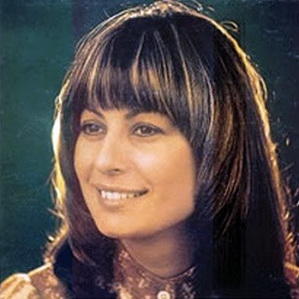
Elisavet Katikaridou Kalamaria, best known as Lizeta Nikolaou, was a Greek singer.
The Corfu Easter is a complex mix of Catholic and Orthodox Christian religious traditions with influences from Venetian standards and local cultural characteristics. Since the years of the Venetian rule, Easter has been co-celebrated by the Orthodox and Catholic Churches.
From an interview with Vasilis Papaconstantinou Η χορωδία Αγίας Τριάδας Θεσσαλονίκης μέσα από την ιστορία και το έργο της (1967-2017): μουσικολογικές προσεγγίσεις. Γρηγοριάδου, Ευδοξία. Διπλωματική εργασία Α.Π.Θ. Τμημα Μουσικών Σπουδών, Ιούνιος 2017. http://sophia.mus.auth.gr/xmlui/handle/123456789/1691












